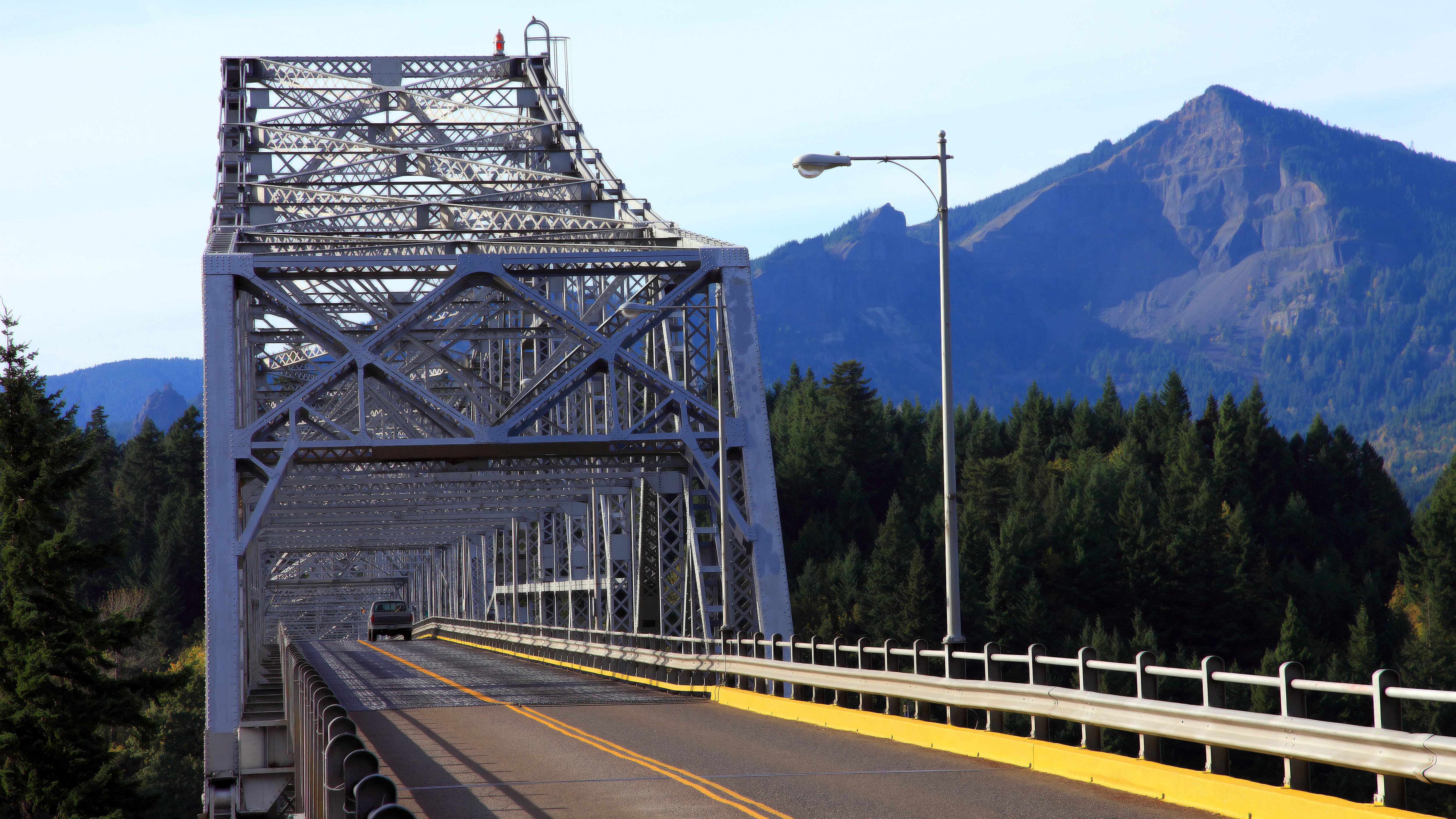The Oregon Legislature’s Joint Committee on Transportation adopted an amendment May 16 to House Bill 3622, which lays out funding for three bridges earmarked for upgrades: the Burnside Bridge in Portland, which Multnomah County has identified as the city’s east-west passage in the event of a big quake; the rickety Hood River-White Salmon, Wash., bridge across the Columbia River, which is set for replacement; and the 97-year-old Bridge of the Gods at Cascade Locks, which needs seismic work.
The amendment included figures the committee thought were appropriate as initial funding: $20 million each for the Burnside and Hood River bridges and $6 million for the Bridge of the Gods. Supporters of all three projects had reason to expect those amounts to show up in end-of-session funding bills printed after some Senate Republicans returned to work June 14.
Washington previously appropriated $75 million for its share of the Hood River bridge. Backers of the Bridge of the Gods project, which also crosses the Columbia, hoped the $6 million from Oregon would trigger a match from Washington for that project.
But when details of House Bill 5030, a lottery bond-backed funding bill for transportation projects, got printed over the weekend, the result contained funding for the Burnside and Hood River bridges but nothing for Cascade Locks.
One of the chief sponsors of HB 3622, Sen. Daniel Bonham (R-The Dalles) pronounced himself “shocked and appalled” that his colleagues removed funding for the Cascade Locks project, which lies in his district.
“I was asked to sponsor a bill that included funding for three bridges (Burnside, Bridge of the Gods and Hood River),” Bonham says. “That bill included a project labor agreement that I opposed in conjunction with the Burnside project, but I accepted that bad concept in order to move forward with the global investment in the the necessary bridge projects. To see the Bridge of the Gods removed feels like a betrayal of the commitment I made to sponsor the bill to begin with.”
Bonham adds that it’s particularly galling because another project funded under the auspices of the Oregon Department of Transportation in HB 5030—$5 million for a bicycle-pedestrian overpass over Highway 97 and railroad tracks along Hawthorne Avenue in Bend—got funding.
“My understanding of the Bend project is it is very much still conceptual and was not a part of any public process in Salem,” Bonham says.
Bonham, of course, is one of the Republican senators who walked out of the Capitol on May 3. When Senate Minority Leader Tim Knopp (R-Bend) negotiated a return last week, Bonham stayed out, only returning today, after the amendment to HB 5030 with the funding list had been printed. The Bend project is in Knopp’s district.
Bonham declined to address whether he was being punished and Knopp rewarded. “I’m not going to speculate on that,” he says.
A spokesperson for Knopp didn’t respond to a request for comment.
Connor Radnovich, a spokesman for Senate President Rob Wagner (D-Lake Oswego), denied the funding decisions were aimed at rewarding Knopp and punishing Bonham.
“There were lots of requests for lottery bonds, and not everything could be fulfilled,” Radnovich says. “My understanding on the Bend component is that was a standing request for some time.”
But Rep. Susan McLain (D-Forest Grove), co-chair of the Joint Transportation Committee, says she’s mystified by the funding for the Bend project. Her committee never discussed the project this session.
“I don’t know where the Bend project got airspace,” McLain says. “We had no information about it.” She adds that she’s already heard from unhappy supporters of the Bridge of the Gods project.
“We’ll keep working on the Bridge of the Gods project and hope to bring it back next year,” she says.

